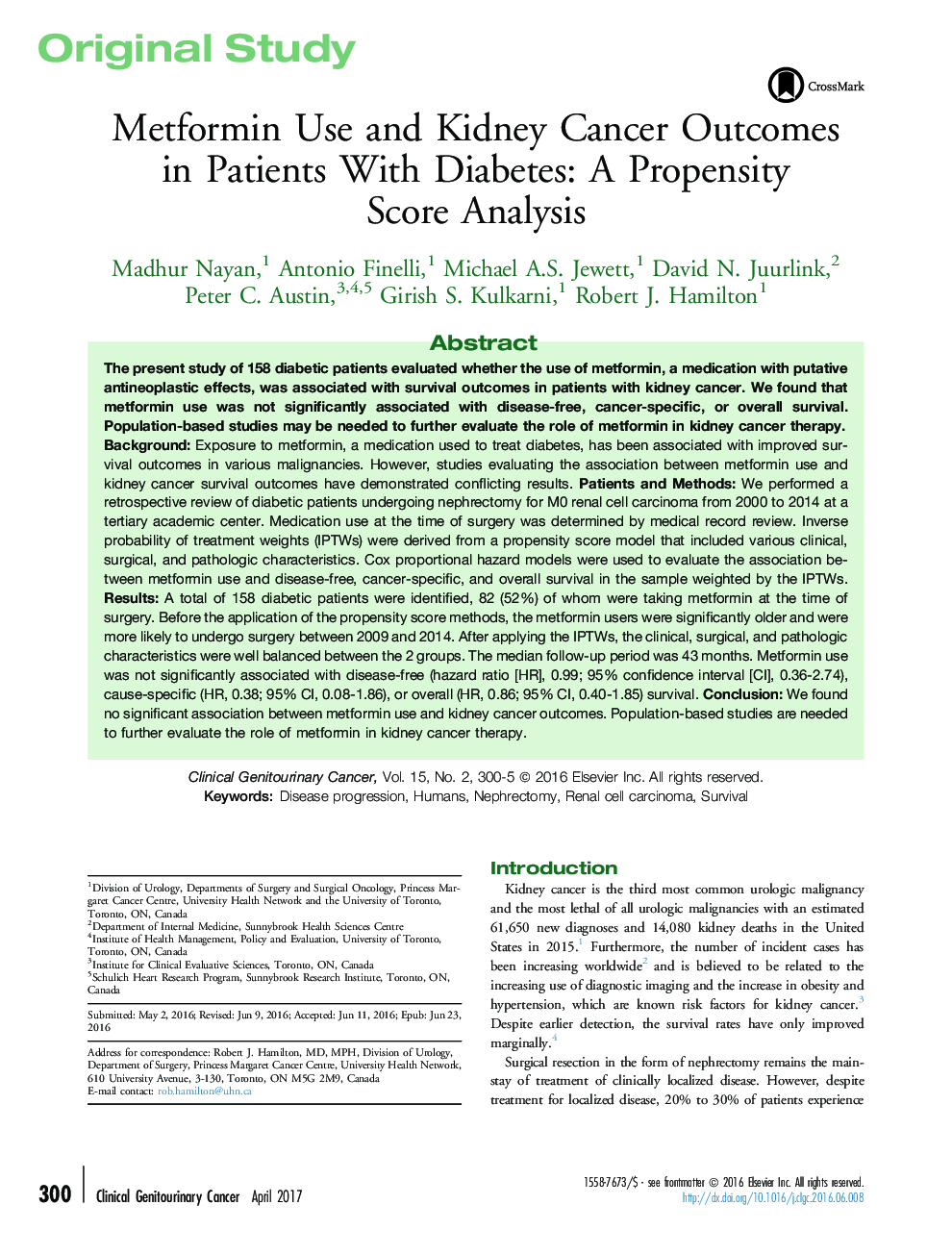| کد مقاله | کد نشریه | سال انتشار | مقاله انگلیسی | نسخه تمام متن |
|---|---|---|---|---|
| 5581236 | 1404197 | 2017 | 6 صفحه PDF | دانلود رایگان |
BackgroundExposure to metformin, a medication used to treat diabetes, has been associated with improved survival outcomes in various malignancies. However, studies evaluating the association between metformin use and kidney cancer survival outcomes have demonstrated conflicting results.Patients and MethodsWe performed a retrospective review of diabetic patients undergoing nephrectomy for M0 renal cell carcinoma from 2000 to 2014 at a tertiary academic center. Medication use at the time of surgery was determined by medical record review. Inverse probability of treatment weights (IPTWs) were derived from a propensity score model that included various clinical, surgical, and pathologic characteristics. Cox proportional hazard models were used to evaluate the association between metformin use and disease-free, cancer-specific, and overall survival in the sample weighted by the IPTWs.ResultsA total of 158 diabetic patients were identified, 82 (52%) of whom were taking metformin at the time of surgery. Before the application of the propensity score methods, the metformin users were significantly older and were more likely to undergo surgery between 2009 and 2014. After applying the IPTWs, the clinical, surgical, and pathologic characteristics were well balanced between the 2 groups. The median follow-up period was 43 months. Metformin use was not significantly associated with disease-free (hazard ratio [HR], 0.99; 95% confidence interval [CI], 0.36-2.74), cause-specific (HR, 0.38; 95% CI, 0.08-1.86), or overall (HR, 0.86; 95% CI, 0.40-1.85) survival.ConclusionWe found no significant association between metformin use and kidney cancer outcomes. Population-based studies are needed to further evaluate the role of metformin in kidney cancer therapy.
Journal: Clinical Genitourinary Cancer - Volume 15, Issue 2, April 2017, Pages 300-305
